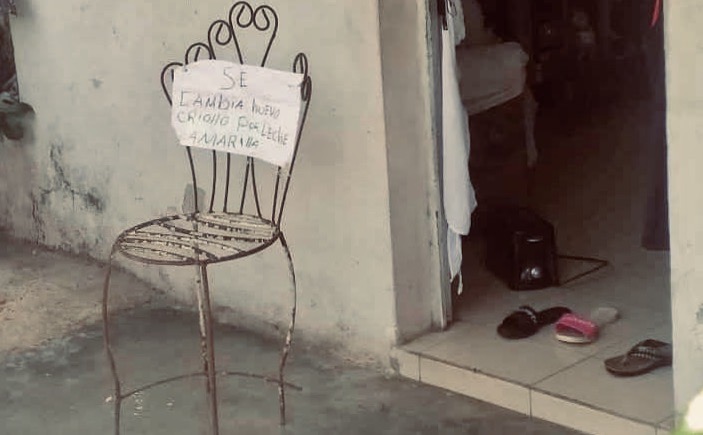Marxist teleological simplism understands history as an ascending continuum that began in primitive society, from there gave rise to slavery, feudalism, capitalism and imperialism before culminating in enlightened communism. Marx assumed that not only were things this way, but that they could not be any other.
It is extremely ironic, - if not, poetic - then, that a clear refutation of the German philosopher comes from one of its last progeny, Castroist Marxism, which has come to demonstrate that history, rather than an ascending line, is really a cyclical spiral, a philosophical contribution evidenced by the return of currently unclassifiable Cuban society to the primitive economic system of bartering.
Faced with the inexorable advance of dollarization, evidenced in the contrast between the desolate shelves of stores selling in local currency and the well-stocked ones of those selling in foreign currency, Cubans fear that their money will end up on a par with the official newspaper Granma, whose hygienic use is universally recognized.
Thus, they have now taken up the commercial customs of their pre-Columbian ancestors to get what they need without turning to a government that pays them in toilet paper, but charges them for the little it sells them in the enemy's dollars.
Of course, these modern natives no longer exchange three shells for two tortillas in front of the tribal chief. Rather, making the most of their scarce and overpriced Internet access, they have created channels on the social network Telegram to market, not what they have left over (what could a Cuban have left over?) but what they need, but that they must exchange for something they need even more.
On this digital black market you can find tools, clothes, jewelry, household appliances and antiques offered mainly in exchange for food or toiletries, but it goes from absurd to unsettling when it comes to medicines: anxiolytics, antidepressants, painkillers and antibiotics are the items most in demand, though, due to the spread of the scabies epidemic, the hottest remedy right now is permethrin.
The return to this economic primitivism manifests the people’s distrust in the state’s management, which ought to be reinforcing and bolstering the value of commonly accepted means of exchange. Although the people are not conducting technical analyses of monetary policy, because of the rampant inflation they sense that the national money is less and less reliable, such that, in the absence of dollars, they prefer to trade directly rather than amass the currency of a government that only delivers - and even shines- on the nightly news.
Castroism, meanwhile, handles inflation the same way it does political dissidents: whenever it can, it ignores it; when it cannot, it represses it harshly; whatever it takes so that this stubborn reality does not interfere with the sweet fantasy that in Cuba prices and consciences are controlled.
The harsh truth, however, is that price controls are worsening the situation by functioning as a funnel where private producers get the short end of the stick, with profit margins barely allowing them to survive, while state-owned import companies run by the military enjoy a free hand to multiply their profits several times over at the people’s expense.
Since the market is unable to express itself through prices, it does so through the quintessential symbols of the Cuban socialist economy: shortages and lines. And, if the government does not take serious steps to free up production and boost the national currency, an archaic return to barter will be added to that list.
Hard times (even harder) are coming for Cuban society, which, instead of advancing, is regressing. In the end, neither the ordenamiento, State Security nor the songs of Raul Torres or Virulo will prevent Cubans from continuing to yearn for the ultimate swap: when they exchange an old and useless government for any other that is not just more of the same.
